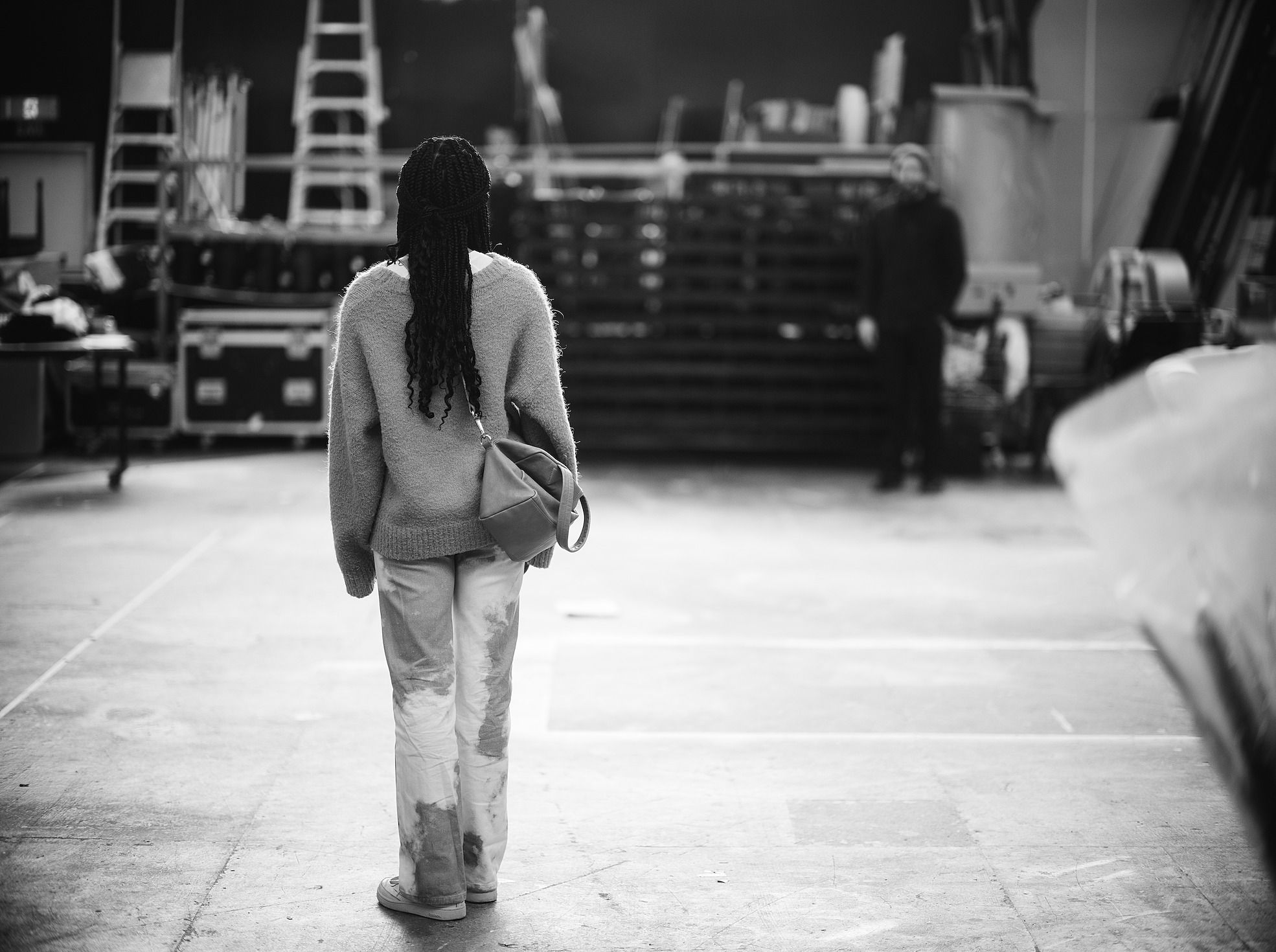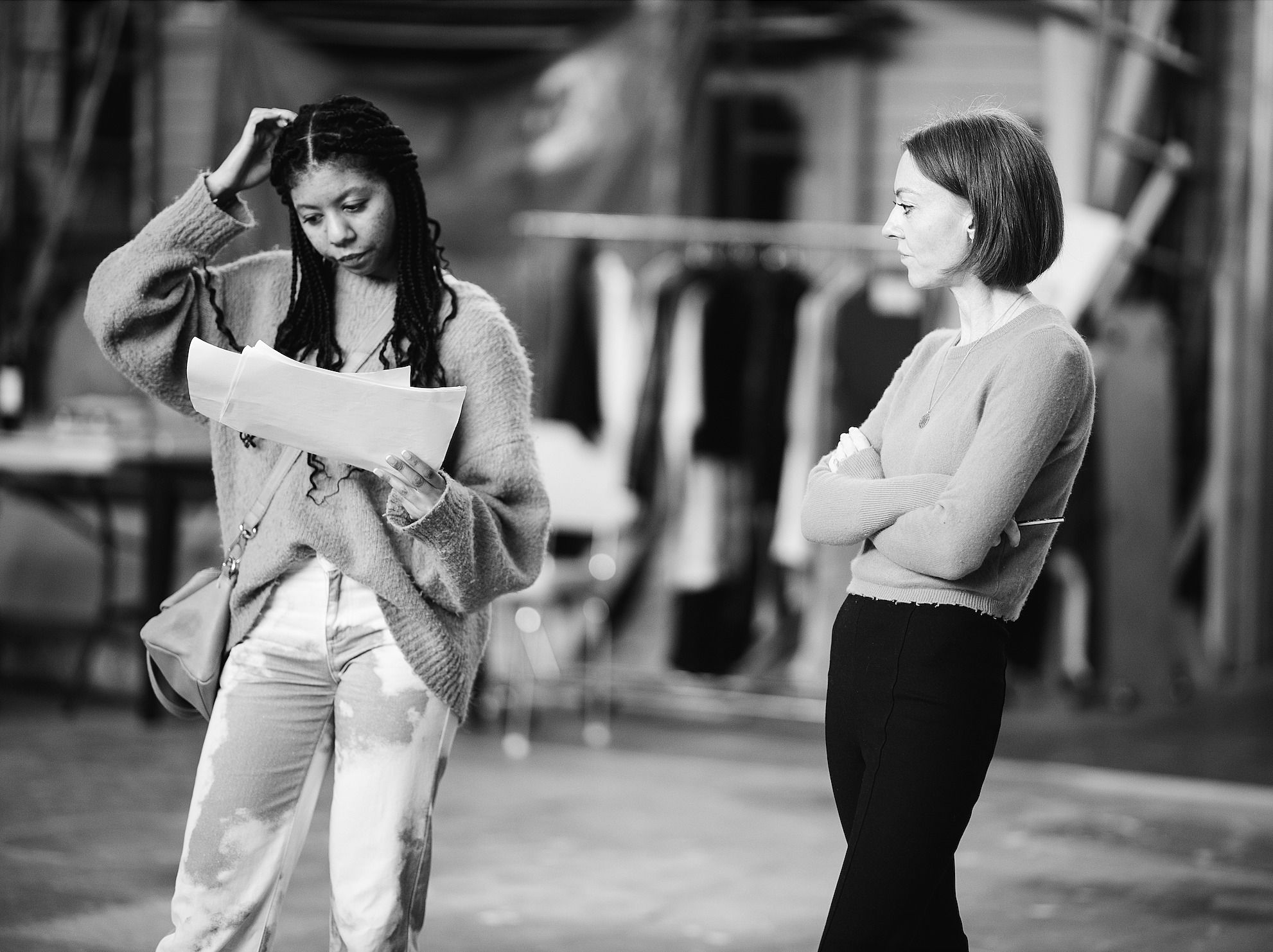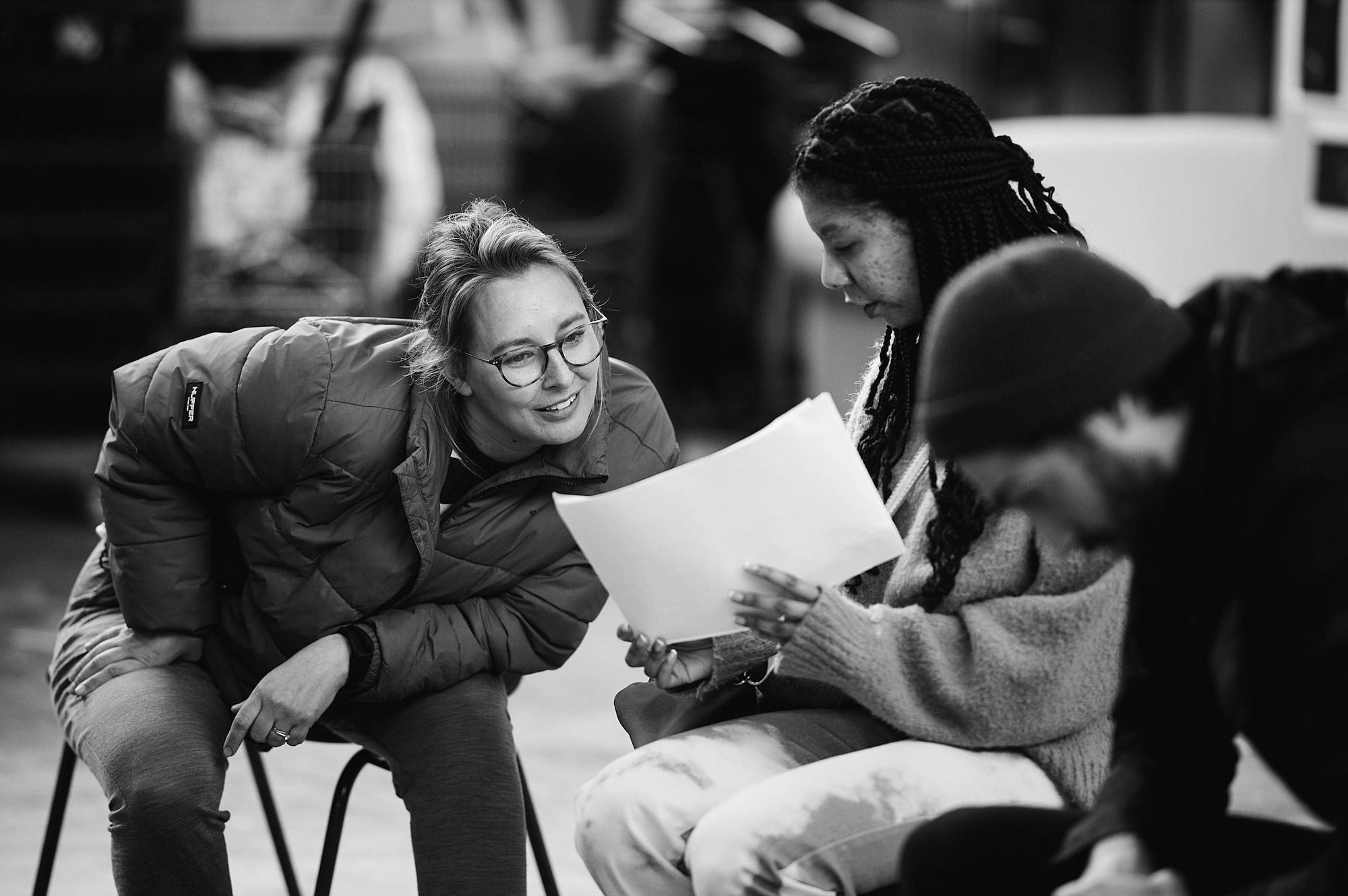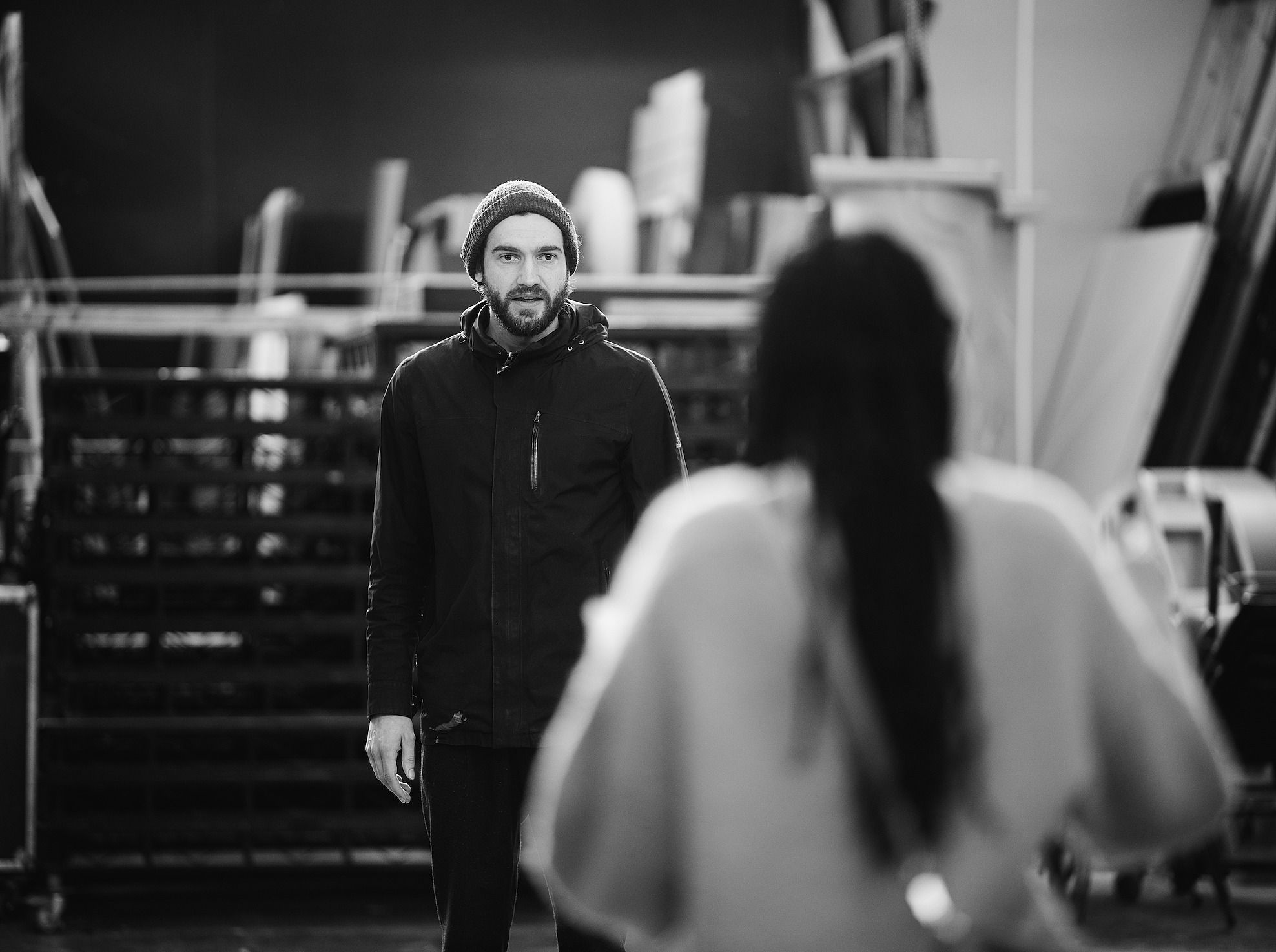The Body and the Expectation – Sex and Power in the Theatre
Kitty Wasasala delves into Silo Theatre’s upcoming show The Writer, which speaks to sex, power and theatre in our culture today.
CONTENT WARNING: sexual assault
Tāmaki Makaurau’s Silo Theatre has a reputation to uphold. With 25 years of bold and rich storytelling under its belt, and following June’s sell-out season of seven methods of killing kylie jenner, the company’s next move has to be a big one. Luckily, their latest venture proves to pack a hearty punch. Ella Hickson’s The Writeris a show about sex and power. It provides an insight into the transactions, the risks and the compromises that women in the theatre must make to be taken seriously. As it turns out – spoiler alert – everything is sex and power. And since men almost always have the power, they too have the sexual control, in this world and every other, armed with the agency that we so deeply crave for ourselves. This is not to say that sexuality has no place in the theatre, but we must ask ourselves, who benefits from our bodies?
The Writer breaks down power imbalance in the theatre world; in particular, the expectation that comes with being a female artist in a male-dominated industry. The titular character (Sophie Henderson) challenges both a Director (Stephen Lovatt) and her Boyfriend (Matt Whelan) on the roles of sex and gender in the theatre, and explores how these roles are often weaponised against us. As we come to see – and as too many already know too well – when it comes to women in theatre, sex is always part of the transaction. Women and other marginalised genders know inherently that our artistic worth is directly tied to our perceived fuckability, an experience that our male counterparts aren’t subject to – at least not in the same way. In the theatre, less is asked of men, while women must enthusiastically perform sex and gender in a myriad of ways. Women must be willing to engage wholly, to sacrifice every part of ourselves for the sake of art. In the opening scene of The Writer, the Young Woman (Ash Williams) argues that “there is no kind of sex on stage that doesn’t oppress women”, and she’s devastatingly correct. There is no control. Control is an illusion. You’re being watched, you’re being directed, you’re being penetrated. There is only the body and the expectation.
As we come to see – and as too many already know too well – when it comes to women in theatre, sex is always part of the transaction.
Ash Williams, and Silo Artistic Director Sophie Roberts in rehearsal for The Writer. Photo: David St. George
Regardless of whether or not they are explicitly violent, excessive and gratuitous sex scenes are far too familiar in our theatres, and our viewing them adds nothing to the story. On the contrary, these scenes are incredibly reductive and dangerous for both audiences and performers. Sexual violence is a reality for many people, and it has no place on the stage. It’s a self-fulfilling prophecy, satisfying its own sick demand by enforcing the role of sex and sexual domination in the theatre.
The Young Woman tells us that performers are simply “living for applause, and that is fucking dangerous. That is a perilous way to be.” She is later reminded by the Male Actor that she should be “grateful” for the opportunities he gave her because of his (unrequited) sexual attraction. Like her, and like many other young female actors, I always knew that taking my clothes off would earn the most praise – and praise was all I’d ever known. It rotted me from the core to be depending so much on that approval. I was a virgin during my first year at drama school, barely an adult in any sense, but still forcing myself to find power and strength through a sexual liberation that had not met me yet. It was an unspoken exchange in our world, to offer up sexuality as currency. We were told that this was called “playing the game”, except it was never really clear who had won.
By the time I reached my third year, I had grown tired of this game. A male film director was, for some unknown reason, appointed to direct an entirely female cast. He had made it clear that his presence among us was a gift, a benevolent blessing rather than an actual meaningful collaboration among peers. One of his favourite films was Lolita, he’d told us with a straight face. Initially cast in a major role, I gave him nothing of my own precious self in the rehearsal process, only consummate professionalism – and I was cut out of the film entirely. Power demands to be fed at all costs, and if you refuse to feed it, you will always be cut off. This is no different in The Writer; the power of the titular character is only granted conditionally by the male director on the basis that she produces work that he approves of. However, as she comes to learn, power by proxy is not actual power. It’s just pretend.
Up until this point I’d always told myself that there was some power in weaponising my sexuality – and while that may be true for others, what I knew deep down was that I wasn’t in control here, not really. The film went on without me and I was left in the dust, wondering if submission and female sexuality were really all I could hope to offer to a system that already knew what it wanted from me. The eventual development of my Queerness felt like a glitch, a betrayal to all that I had been taught to know, need and value. Once you take men out of the equation, you become less relevant and less necessary to the whole. Who do you exist for, if not for a man? What, then, is your role in a world that demands an ongoing answer to male desire?
Once you take men out of the equation, you become less relevant and less necessary to the whole. Who do you exist for, if not for a man? What, then, is your role in a world that demands an ongoing answer to male desire?
Sophie Henderson in rehearsal for The Writer. Photo: David St. George
Queerness runs through The Writer like a surging undercurrent. It lies in the Girlfriend’s quiet, hopeful ache for affection and kindness from her lovers. It lives in the thunderous and divinely feminine rage of the Young Woman that demands a better world for female artists. To be Queer is to know a depth of desire like no other, but to be a woman is to know better than to want. The Writer understands that for Queer women, our mere existence is a conflict of interest and our desires are at odds with what is expected of us.
Desire creates a need for power, and power creates a need for control. The Writer’s women dare to desire too, threatening the existing powers. Any objection to patriarchal dominance is considered a threat, so how do we operate safely in this world? The truth is that we can’t. Our world is one that doesn’t work in the favour of gender minorities. Our safety shouldn’t be dependent on male compliance, in the hopes that the men will generously allow us to play nicely. Our safety shouldn’t even be in question. We are the ones in danger, yet female desire is what is viewed as dangerous. How dare we demand security, let alone demand at all. Too often we’re told to be grateful for the crumbs we have been given. Call me ungrateful and petulant, but I’m still so hungry.
The Writer is a show that knows who it is speaking to and speaking about. It makes us all culpable. It unravels right from the beginning, performing its very own autopsy, examining how theatre both reflects and influences the conversations we’re having and the world around us. How apt that the world as we know it is crashing and burning. You don’t need me to tell you that. You’ve lived it too. But, sometimes, when a car crashes, there’s no sudden hellfire, no immediate screams. Sometimes there are just little shards of glass, once a warm window, quietly glistening in a gentle moonbeam. From these shards, we can begin to tell a story. And so The Writer unfolds, inviting the audience to stop and look, to see ourselves in the ruins, and to help pick up the pieces.
Matt Whelan in rehearsal for The Writer Photo: David St. George
Desire creates a need for power, and power creates a need for control. The Writer’s women dare to desire too, threatening the existing powers.
The Writer, originally staged at London’s Almeida Theatre in 2018, is a big feat for Silo Theatre, a company well known for its ambitious work. The Writer allows Silo to carry on this streak, diving headfirst into the cultural conversation of a world ruptured in the wake of the #MeToo movement. The Writer is not a show that openly examines racial dynamics, despite its ironic acknowledgement in the second scene. It must be understood that racism and white supremacy feed massively into the patriarchal structures that are being challenged here. Almost the entire company of this production is cis, white and middle class, something that I hope is being reflected upon moving forward.
Above all else, The Writer is simply a sign of our times. It’s not a solution, not an answer, but an offering – playwright Ella Hickson asks us to examine the power structures that dominate our lives, and to question who’s really benefiting from their existence. “I’m just thinking,” offers the nameless Young Woman, “who actually gets what they want? In that sense, who is the protagonist?”
*
This piece is presented as part of a partnership with Silo Theatre. They cover the costs of paying our writers while we retain all editorial control.





